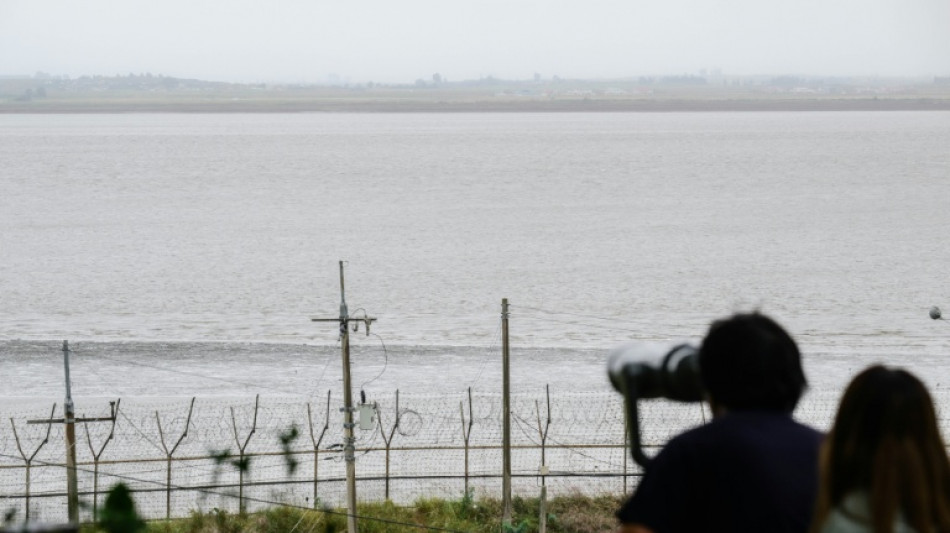
-
 PSG penalty hero Safonov ended Intercontinental win with broken hand
PSG penalty hero Safonov ended Intercontinental win with broken hand
-
French court rejects Shein suspension

-
 'It's so much fun,' says Vonn as she milks her comeback
'It's so much fun,' says Vonn as she milks her comeback
-
Moscow intent on pressing on in Ukraine: Putin

-
 UN declares famine over in Gaza, says 'situation remains critical'
UN declares famine over in Gaza, says 'situation remains critical'
-
Guardiola 'excited' by Man City future, not pondering exit

-
 Czechs name veteran coach Koubek for World Cup play-offs
Czechs name veteran coach Koubek for World Cup play-offs
-
PSG penalty hero Safonov out until next year with broken hand

-
 Putin says ball in court of Russia's opponents in Ukraine talks
Putin says ball in court of Russia's opponents in Ukraine talks
-
Czech Zabystran upsets Odermatt to claim Val Gardena super-G

-
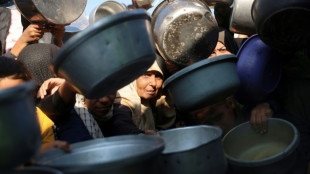 NGOs fear 'catastrophic impact' of new Israel registration rules
NGOs fear 'catastrophic impact' of new Israel registration rules
-
US suspends green card lottery after MIT professor, Brown University killings
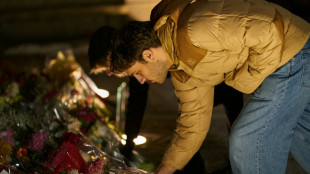
-
 Arsenal in the 'right place' as Arteta marks six years at club
Arsenal in the 'right place' as Arteta marks six years at club
-
Sudan's El-Fasher under the RSF, destroyed and 'full of bodies'
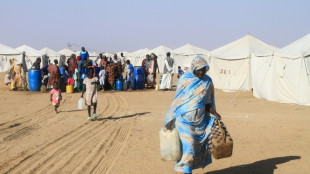
-
 From farms to court, climate-hit communities take on big polluters
From farms to court, climate-hit communities take on big polluters
-
Liverpool have 'moved on' from Salah furore, says upbeat Slot

-
 Norway crown princess likely to undergo lung transplant
Norway crown princess likely to undergo lung transplant
-
Iraq negotiates new coalition under US pressure
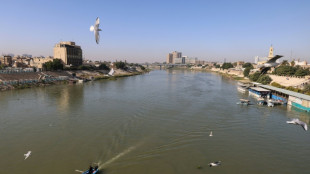
-
 France's budget hits snag in setback for embattled PM
France's budget hits snag in setback for embattled PM
-
Putin hails Ukraine gains, threatens more, in annual press conference

-
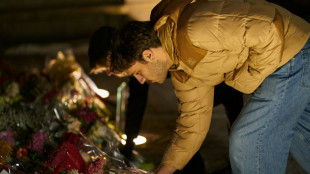 US suspends green card lottery after Brown, MIT professor shootings
US suspends green card lottery after Brown, MIT professor shootings
-
Chelsea's Maresca says Man City link '100 percent' speculation

-
 Dominant Head moves into Bradman territory with fourth Adelaide ton
Dominant Head moves into Bradman territory with fourth Adelaide ton
-
Arsenal battle to stay top of Christmas charts

-
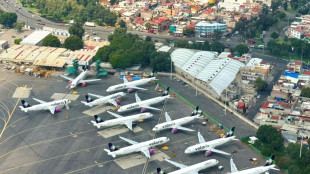 Mexican low-cost airlines Volaris and Viva agree to merger
Mexican low-cost airlines Volaris and Viva agree to merger
-
Border casinos caught in Thailand-Cambodia crossfire

-
 Australia's Head slams unbeaten 142 to crush England's Ashes hopes
Australia's Head slams unbeaten 142 to crush England's Ashes hopes
-
Epstein files due as US confronts long-delayed reckoning

-
 'Not our enemy': Rush to rearm sparks backlash in east Germany
'Not our enemy': Rush to rearm sparks backlash in east Germany
-
West Indies 110-0, trail by 465, after Conway's epic 227 for New Zealand

-
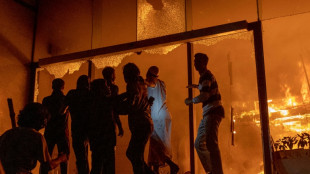 Arsonists target Bangladesh newspapers after student leader's death
Arsonists target Bangladesh newspapers after student leader's death
-
Volatile Oracle shares a proxy for Wall Street's AI jitters

-
 Tears at tribute to firefighter killed in Hong Kong blaze
Tears at tribute to firefighter killed in Hong Kong blaze
-
Seahawks edge Rams in overtime thriller to seize NFC lead

-
 Teenager Flagg leads Mavericks to upset of Pistons
Teenager Flagg leads Mavericks to upset of Pistons
-
Australia's Head fires quickfire 68 as England's Ashes hopes fade

-
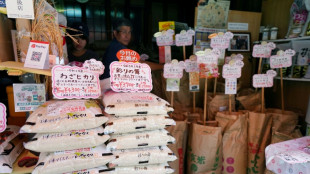 Japan hikes interest rates to 30-year-high
Japan hikes interest rates to 30-year-high
-
Brazil's top court strikes down law blocking Indigenous land claims
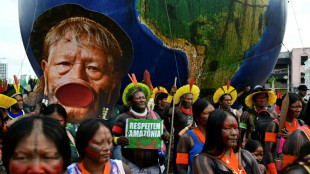
-
 Conway falls for 227 as New Zealand pass 500 in West Indies Test
Conway falls for 227 as New Zealand pass 500 in West Indies Test
-
'We are ghosts': Britain's migrant night workers
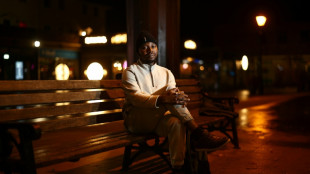
-
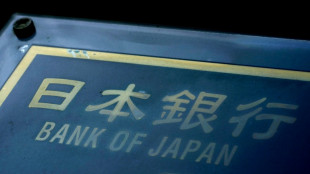 Asian markets rise as US inflation eases, Micron soothes tech fears
Asian markets rise as US inflation eases, Micron soothes tech fears
-
Giant lanterns light up Christmas in Catholic Philippines
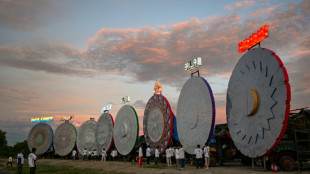
-
 TikTok: key things to know
TikTok: key things to know
-
Putin, emboldened by Ukraine gains, to hold annual presser

-
 Deportation fears spur US migrants to entrust guardianship of their children
Deportation fears spur US migrants to entrust guardianship of their children
-
Upstart gangsters shake Japan's yakuza

-
 Trump signs $900 bn defense policy bill into law
Trump signs $900 bn defense policy bill into law
-
Stokes's 83 gives England hope as Australia lead by 102 in 3rd Test

-
 Go long: the rise and rise of the NFL field goal
Go long: the rise and rise of the NFL field goal
-
Australia announces gun buyback, day of 'reflection' after Bondi shooting


North Korean refugees long for family behind impenetrable border
After taking a bow and making an offering of fruit and a dried fish, Ryh Jae-hong tosses a cup of alcohol towards the thick barbed-wire fence that protects South Korea's Gyodong Island from North Korea.
South Koreans perform this funeral ritual during the autumn harvest festival Chuseok at altars erected along the border to honour ancestors who remained in the North.
Just two kilometres (1.2 miles) from the Manghyangdae altar, on the northern tip of Gyodong, farmers work the land beneath red flags and a slogan in giant letters on a nearby hilltop reads: "Long live socialism!"
"They are there, I just hope they are doing well," said Ryh, whose father fled south at the end of the Korean War in the 1950s, but whose grandmother and other relatives stayed behind and have not been heard from since.
Gyodong Island, which sits at the mouth of the Han river, welcomed thousands of displaced people during the war.
Many crossed the water in small boats to Gyodong or swam across when Chinese forces -- allied with North Koreans -- advanced on the town of Yeonbaek.
Little did they know this would be their last crossing.
Those displaced have found some consolation in the island's swallows, which legend has it serve as messengers, capable of crossing the world's most impenetrable border.
Telescopes installed at the Manghyangdae altar have become their only means of seeing the place they once called home, now behind the border's barbed wire fence.
Most first-generation refugees have passed away, but a deep sorrow remains for the handful still alive.
- 'Hoping for reunification' -
"We are a people with broken hearts. Even though we live in abundance today, my parents, my brothers and sisters all remained in North Korea," said 94-year-old Chai Jae-ok.
"I came to the South and had to abandon them. What use is living in luxury if I cannot see them again? Day and night, I have never stopped crying out and hoping for reunification.
"Before my eyes close forever, I would like to see it happen."
His dream of reunification remains elusive for now.
While North Korea recently expressed an interest in resuming dialogue with the United States, it has made clear that speaking to the South is out of the question, labelling it a "hostile state" with which separation is irreversible.
Pyongyang has dismantled all institutions dedicated to potential reunification and demolished connecting roads and railways, built during periods of detente in the 2000s.
- 'Is there greater pain?' -
"My only wish is that even if reunification does not happen in my lifetime, an exchange between the North and South would allow me at least to mourn at my parents' grave," said Chai.
"It is only six kilometers from here. By car, it would take barely ten minutes. Is there greater pain?"
Min Ok-sun, 92, left her parents and four brothers in the North.
"I left my homeland at 17 and never saw them again," she said.
She married another refugee in Gyodong, Kim Ching-san, a former fighter who was tasked with missions to infiltrate the North and is now 96 years old.
"When I see birds returning to their nests at sunset, I tell myself that we humans also have this need to return home. It's our instinct," said Kim.
"My wife and I have different ways of coping with the longing for our homeland. She finds comfort in simple things, like curling up under a blanket. I cannot forget.
"Every day, I fight inside, as if I were still at war. That's why I look older than her."
Refugees and other elderly people gather in Gyodong on festive days to sing old Korean ballads from the Japanese occupation of 1910-1945, at the tops of their voices.
"These are songs that everyone, both in the South and the North, knew before the division," said Chang Gwang-hyuck, a volunteer who leads the sessions and whose grandfather came from the North.
"They reflect the aspirations and emotions of the people of that time. What these elderly people desire most is to soothe their nostalgia.
"When I see these people who left their homes at 20 and have never been able to return, I feel a deep sadness."
A.Rodriguezv--AMWN
